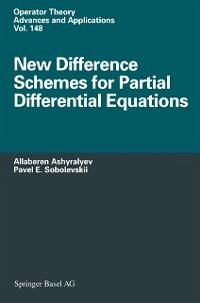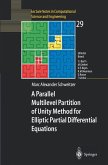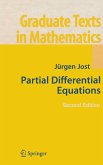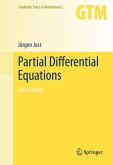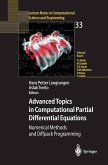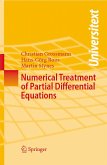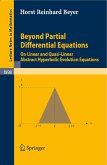Allaberen Ashyralyev, Pavel E. Sobolevskii
New Difference Schemes for Partial Differential Equations (eBook, PDF)
113,95 €
113,95 €
inkl. MwSt.
Sofort per Download lieferbar

57 °P sammeln
113,95 €
Als Download kaufen

113,95 €
inkl. MwSt.
Sofort per Download lieferbar

57 °P sammeln
Jetzt verschenken
Alle Infos zum eBook verschenken
113,95 €
inkl. MwSt.
Sofort per Download lieferbar
Alle Infos zum eBook verschenken

57 °P sammeln
Allaberen Ashyralyev, Pavel E. Sobolevskii
New Difference Schemes for Partial Differential Equations (eBook, PDF)
- Format: PDF
- Merkliste
- Auf die Merkliste
- Bewerten Bewerten
- Teilen
- Produkt teilen
- Produkterinnerung
- Produkterinnerung

Bitte loggen Sie sich zunächst in Ihr Kundenkonto ein oder registrieren Sie sich bei
bücher.de, um das eBook-Abo tolino select nutzen zu können.
Hier können Sie sich einloggen
Hier können Sie sich einloggen
Sie sind bereits eingeloggt. Klicken Sie auf 2. tolino select Abo, um fortzufahren.

Bitte loggen Sie sich zunächst in Ihr Kundenkonto ein oder registrieren Sie sich bei bücher.de, um das eBook-Abo tolino select nutzen zu können.
This book explores new difference schemes for approximating the solutions of regular and singular perturbation boundary-value problems for PDEs. The construction is based on the exact difference scheme and Taylor's decomposition on the two or three points, which permits investigation of differential equations with variable coefficients and regular and singular perturbation boundary value problems.
- Geräte: PC
- ohne Kopierschutz
- eBook Hilfe
- Größe: 48.71MB
Andere Kunden interessierten sich auch für
![A Parallel Multilevel Partition of Unity Method for Elliptic Partial Differential Equations (eBook, PDF) A Parallel Multilevel Partition of Unity Method for Elliptic Partial Differential Equations (eBook, PDF)]() Marc Alexander SchweitzerA Parallel Multilevel Partition of Unity Method for Elliptic Partial Differential Equations (eBook, PDF)40,95 €
Marc Alexander SchweitzerA Parallel Multilevel Partition of Unity Method for Elliptic Partial Differential Equations (eBook, PDF)40,95 €![Nonlinear Evolution Equations and Related Topics (eBook, PDF) Nonlinear Evolution Equations and Related Topics (eBook, PDF)]() Nonlinear Evolution Equations and Related Topics (eBook, PDF)97,95 €
Nonlinear Evolution Equations and Related Topics (eBook, PDF)97,95 €![Partial Differential Equations (eBook, PDF) Partial Differential Equations (eBook, PDF)]() Jürgen JostPartial Differential Equations (eBook, PDF)48,95 €
Jürgen JostPartial Differential Equations (eBook, PDF)48,95 €![Partial Differential Equations (eBook, PDF) Partial Differential Equations (eBook, PDF)]() Jürgen JostPartial Differential Equations (eBook, PDF)39,95 €
Jürgen JostPartial Differential Equations (eBook, PDF)39,95 €![Advanced Topics in Computational Partial Differential Equations (eBook, PDF) Advanced Topics in Computational Partial Differential Equations (eBook, PDF)]() Advanced Topics in Computational Partial Differential Equations (eBook, PDF)40,95 €
Advanced Topics in Computational Partial Differential Equations (eBook, PDF)40,95 €![Numerical Treatment of Partial Differential Equations (eBook, PDF) Numerical Treatment of Partial Differential Equations (eBook, PDF)]() Christian GrossmannNumerical Treatment of Partial Differential Equations (eBook, PDF)69,95 €
Christian GrossmannNumerical Treatment of Partial Differential Equations (eBook, PDF)69,95 €![Beyond Partial Differential Equations (eBook, PDF) Beyond Partial Differential Equations (eBook, PDF)]() Horst Reinhard BeyerBeyond Partial Differential Equations (eBook, PDF)35,95 €
Horst Reinhard BeyerBeyond Partial Differential Equations (eBook, PDF)35,95 €-
-
-
This book explores new difference schemes for approximating the solutions of regular and singular perturbation boundary-value problems for PDEs. The construction is based on the exact difference scheme and Taylor's decomposition on the two or three points, which permits investigation of differential equations with variable coefficients and regular and singular perturbation boundary value problems.
Dieser Download kann aus rechtlichen Gründen nur mit Rechnungsadresse in A, B, BG, CY, CZ, D, DK, EW, E, FIN, F, GR, HR, H, IRL, I, LT, L, LR, M, NL, PL, P, R, S, SLO, SK ausgeliefert werden.
Produktdetails
- Produktdetails
- Verlag: Birkhäuser Basel
- Seitenzahl: 446
- Erscheinungstermin: 6. Dezember 2012
- Englisch
- ISBN-13: 9783034879224
- Artikelnr.: 53137851
- Verlag: Birkhäuser Basel
- Seitenzahl: 446
- Erscheinungstermin: 6. Dezember 2012
- Englisch
- ISBN-13: 9783034879224
- Artikelnr.: 53137851
The present monograph is devoted to the construction and investigation of new difference schemes for approximating the solutions of regular and singular perturbation boundary-value problems for partial differential equations. This approach permits extending essentially a class of problems where the theory of difference methods is applicable. Namely, it is now possible to investigate differential equations with variable coefficients and regular and singular perturbation boundary-value problems. The investigation is based on new coercivity inequalities.
The book will be of value for professional mathematicians as well as for advanced students in the fields of numerical analysis, functional analysis, and differential equations.
The book will be of value for professional mathematicians as well as for advanced students in the fields of numerical analysis, functional analysis, and differential equations.
1 Linear Difference Equations.- 1.1 Difference Equations of the First Order.- 1.2 Difference Equations of the Second Order.- 1.3 Difference Equations with Constant Coefficients.- 2 Difference Schemes for First-Order Differential Equations.- 2.1 Single-Step Exact Difference Scheme and Its Applications.- 2.2 Taylor's Decomposition on Two Points and Its Applications.- 3 Difference Schemes for Second-Order Differential Equations.- 3.1 Two-Step Exact Difference Scheme and Its Applications.- 3.2 Taylor's Decomposition on Three Points and Its Applications.- 4 Partial Differential Equations of Parabolic Type.- 4.1 A Cauchy Problem. Well-posedness.- 4.2 Difference Schemes Generated by an Exact Difference Scheme.- 4.3 Single-Step Difference Schemes Generated by Taylor's Decomposition.- 5 Partial Differential Equations of Elliptic Type.- 5.1 A Boundary-Value Problem. Well-posedness.- 5.2 Difference Schemes Generated by an Exact Difference Scheme.- 5.3 Two-Step Difference Schemes Generated by Taylor's Decomposition.- 6 Partial Differential Equations of Hyperbolic Type.- 6.1 A Cauchy Problem.- 6.2 Difference Schemes Generated by an Exact Difference Scheme.- 6.3 Two-Step Difference Schemes Generated by Taylor's Decomposition.- 7 Uniform Difference Schemes for Perturbation Problems.- 7.1 A Cauchy Problem for Parabolic Equations.- 7.2 A Boundary-Value Problem for Elliptic Equations.- 7.3 A Cauchy Problem for Hyperbolic Equations.- 8 Appendix: Delay Parabolic Differential Equations.- 8.1 The Initial-Value Differential Problem.- 8.2 The Difference Schemes.- Comments on the Literature.
1 Linear Difference Equations.- 1.1 Difference Equations of the First Order.- 1.2 Difference Equations of the Second Order.- 1.3 Difference Equations with Constant Coefficients.- 2 Difference Schemes for First-Order Differential Equations.- 2.1 Single-Step Exact Difference Scheme and Its Applications.- 2.2 Taylor's Decomposition on Two Points and Its Applications.- 3 Difference Schemes for Second-Order Differential Equations.- 3.1 Two-Step Exact Difference Scheme and Its Applications.- 3.2 Taylor's Decomposition on Three Points and Its Applications.- 4 Partial Differential Equations of Parabolic Type.- 4.1 A Cauchy Problem. Well-posedness.- 4.2 Difference Schemes Generated by an Exact Difference Scheme.- 4.3 Single-Step Difference Schemes Generated by Taylor's Decomposition.- 5 Partial Differential Equations of Elliptic Type.- 5.1 A Boundary-Value Problem. Well-posedness.- 5.2 Difference Schemes Generated by an Exact Difference Scheme.- 5.3 Two-Step Difference Schemes Generated by Taylor's Decomposition.- 6 Partial Differential Equations of Hyperbolic Type.- 6.1 A Cauchy Problem.- 6.2 Difference Schemes Generated by an Exact Difference Scheme.- 6.3 Two-Step Difference Schemes Generated by Taylor's Decomposition.- 7 Uniform Difference Schemes for Perturbation Problems.- 7.1 A Cauchy Problem for Parabolic Equations.- 7.2 A Boundary-Value Problem for Elliptic Equations.- 7.3 A Cauchy Problem for Hyperbolic Equations.- 8 Appendix: Delay Parabolic Differential Equations.- 8.1 The Initial-Value Differential Problem.- 8.2 The Difference Schemes.- Comments on the Literature.
